A class of priests do not observe the Ekadashi fast, but among those who do observe Ekadashi, those who are virtuous are using social media to show evidence from Vishnu Samhita (Vishnu Smriti) and Atri Samhita (Atri Smriti) to prevent them from observing Ekadashi.
“The life that is lived by the yoshidupavasabratam is a life that is spent in the pursuit of happiness.
The life that is spent in the pursuit of happiness is a life that is spent in the pursuit of happiness.”
(Vishnu Samhita 25/16)
Translation: A woman who observes a fast while her husband is alive, takes away her husband’s life and goes to hell. Therefore, fasting while her husband is alive is not advisable.
The woman who is the object of life is the one who observes the vow.
The woman who is the object of life is the one who destroys the life of the woman and the one who is the object of the vow.
(Atrisamhita, verse 136.)
Translation: A woman who fasts and observes a vow while her husband is alive, takes away her husband’s life and goes to hell.
👉 Readers, please observe the above verses of Vishnu Samhita 25/16 and Atri Samhita 136. Nowhere in these two verses
is it explicitly forbidden to observe fasting on Ekadashi, rather fasting alone is forbidden to observe Sadhvad.
Yet we see that all these priests prescribe fasting for traditional Sadhvads during Kojagari Lakshmi Puja, fasting on Durga Ashtami day of Durga Puja, fasting on Shiva Chaturdashi day of Shiva Ratri, fasting on Santoshi Mata during Santoshi Mata Puja, fasting on Kali during Kali Puja, fasting on Loknath Baba during Loknath Puja, fasting on Kartik Puja, fasting on Surya during Surya Puja, fasting on Ashwini Kumar while cooking food. And if any Sadhva wants to worship all these deities without fasting, no resolution is made in their name. If Sadhva women can fast during the worship of all these deities, then why is there this ban on them while observing Ekadashi fast? We understand that the root of all this is hatred towards Vaishnavas, because Vaishnavas are especially They observe the Ekadashi fast. And by observing Ekadashi, one attains devotion to Lord Vishnu, the Lord of all beings, so all these so-called priests cannot tolerate it.
The Padma Purana clearly makes it mandatory for all men and women between the ages of 8-80 to observe fast on Ekadashi.
If fasting is observed for the love of God, then how can there be sin in it, there can be no logic to it. Moreover, in the Vedas, all human beings including women, men, saints, widows have been instructed to observe fasting for the pleasure of God. Read about this in the link given below.
👉Has the Vedas mentioned Ekadashi fasting?
https://svadharmam.com/has-the-vedas-been-mentioned-in-the-ekadashi-fast/
Therefore, the Vedas have advised all mankind to observe fasts to please God. And devotees observe fasts on Ekadashi Tithi to please the Supreme Lord.
Finally, the Vedas, without any discrimination, have advised all mankind, including Sadhva, widows, to observe fast for the pleasure of God. Also, 14 scriptures, including the Srimad Bhagavatam Padma Purana, have advised to observe the Ekadashi fast of Sadhva. Therefore, there can never be any wrong information in so many scriptures at the same time.
Therefore, our conclusion is that most of the Smriti, including Vishnu Samhita (Vishnu Smriti) and Atri Samhita (Atri Smriti), have been corrupted or adulterated by so-called priests, sold under the lure of atheists. Therefore, it is necessary for readers to be aware of all these issues while reading these Smriti.
Now we will read about the advice given to virtuous women to observe fast on Ekadashi, based on the evidence of the Nimotaka Shastra.
1 ) Brahmin, Kshatriya, Visham, Shudra, Nancaiva, Joshitam.
Mokshadan Kurvadana Bhaktya Vishnu: Priyatarang Dvijaha .
[ Brihannarada Purana, Chapter-21 Verse-2 ]
Bengali translation: “Brahmin, Kshatriya, Vaishya, Shudra and married woman – any of these people can attain liberation by observing the Ekadashi fast with devotion.”
( 2) The one who is with his wife, the one who is with his husband, the one
who is with his wife,
the one who is with his son, the one who is with his wife
[Padma Purana, Svargakhanda, Chapter 44, Verses 76-78]
Bengali translation: “A woman who observes Ekadashi with her husband, becomes blessed with a good son and a good husband, and at death goes to Hari’s home, Vaikuntha. The two are the best! The one who devotes himself to offering a lamp before Hari on Ekadashi, his merits are innumerable, that is, he gains innumerable merits. And the woman who stays awake at night with her husband on Ekadashi, lives in the abode of Hari with her husband for a lifetime.”
3) That woman, who is married to a husband, is a prostitute.
She has a son, a wife, and is blessed with happiness in every birth. [Padma Purana, Brahma Khanda, 5.19]
Bengali translation: “A woman who observes Ekadashi fast with her husband, becomes a son and a husband-pleaser at birth.”
( 4) The woman who is married to a husband is a virtuous woman.
The husband is a virtuous woman in every birth.
The woman who is married to a husband is a virtuous woman.
The wife is a virtuous woman in the abode of the Lord.
[Padma Purana, Triayogasara: Chapter-22 Verse-105]
Bengali translation: “A woman who observes Ekadashi Vrata with her husband, is blessed with a good son and a happy husband at birth. And a woman who observes Jagaranushta with her husband, resides with her husband in the abode of Vaikuntha for eternity.”
5) The unfortunate woman is the measure of fortune for those who do bad deeds.
She is the bestower of happiness and liberation for all .
[Padma Purana, Uttarakhand, 48.4]
Bengali translation: “If an unfortunate woman observes the Ekadashi Vrata, she will attain good fortune. This Ekadashi Vrata is the bestower of happiness and liberation for all, the destroyer of all sins, and the protector of pregnancy.”
(6) Son and wife are devoted to their relatives.
One should fast on the eleventh day of the month.
[ Vishnudharmottar, H.V.B.,
Bengali translation: “One should fast on both the Ekadashis with devotion, along with one’s son, wife, and relatives.”
💥7) Ariradhayishu: Krishna is equal to the great queen.
He is united with the twelve heroes of the samvatsa, the twelve-fold path.
[Srimad Bhagavatam 9.4.29]
Translation: “In order to worship Lord Krishna, King Ambarish, along with his wife, who was as virtuous as he, observed the Ekadashi and Dwadashi fasts for a whole year.”
(8) Gunavati, the wife of Chandra, a disciple of Devasharmma, always observed the Ekadashi Vrata and Kartikama Vrata throughout her life, that is, before and after marriage. Due to the merit of which she went to Vishnu Loka after death and in her next birth became Satyabhama and got the fortune of becoming the wife of Krishna.
💥The vows are performed in the right manner, even after birth and death.
The Ekadashi vows are performed in the right manner, and the Kartikakasya is performed in the right manner.
[ Skanda Purana, Vishnukhanda, Kartikamasamahatmyam, 13.12 ]
Bengali translation: “Shri Krishna said to Satyabhama, ‘Gunavati, the wife of the Moon, observed these two vows – the Ekadashi fast and the Kartik month fast – from birth to death.”
💥(9) Shri Narada Ubach.
This is the face of Radha, the Gopika, who is worshipped by the Yajnasitas.
The Ekadashi Vrata is the cycle of Krishna ‘s desire.
23 Even on the Ekadashi day, Shri Hari is pleased.
On the top of the path, the full moon is full. 24
[Garga Samhita, Madhuryakhand, Chapter 9, Verses 23-24, Narada’s quote]
Bengali translation: Narada said, “The Yajnasita gopis, hearing the greatness of Ekadashi from Radha, observed the Ekadashi fast as prescribed to attain Krishna; as a result of their Ekadashi fast, the cowherd boy Hari himself was pleased and performed the Raasana dance with them on the full moon day of the month of Agrahayana.”
💥(10)Shri Krishna speaks.
The king of the universe, as seen in the picture, speaks.
In the mortal world, the entire Hasid Brahmin
community in India, who is a monk, always worships the gods. He observes 23
months of fasting, and is always a devotee.
He is attached to the worship of Krishna. 24
[Padma Purana, Uttarakhand, 42. 22-24]
Bengali translation: “Shri Krishna said, – King! Listen, I am telling you the story – O earthly Yudhishthira! In ancient times,
there was a Brahmin woman in the mortal world who was adamant in her vows, who always worshipped the gods. She was my constant devotee, a devotee of meat, a devotee of fasting for the love of Krishna, and a great devotee of the worship of liquor.”
💥(11) The goddess’s name is the sixth pillar of the Vratam.
The true Vratam of man is the fruit of liberation.
The form of the form is the same as the moment of the Vapam. 46.
The wealth of grain, the clothes of gold and silver.
The wealth of the building is the sixth pillar of the Vratam. 47.
[Padma Purana, Uttarakhand, 42. 45-47]
Bengali translation: “On the advice of the goddesses, the ascetic performed the Shatila Ekadashi fast, which is the fruit of liberation from food and drink. Then that ascetic instantly became beautiful and obtained wealth, grain, clothes, gold and silver. Under the influence of the Shatila Ekadashi fast, the ascetic’s house was completely completed.”
💥(12) Sapyaivam Manjughosa ca kritavaitadbratamuttamam.
Pisachattvadvinirmmukta papamochnikabratat.
Divine formdhara sa vaigata nake varapsarah..
[ Padma Purana, Uttarakhand, Chapter-46.46 ]
Bengali translation: “The apsara Manjughosa was also freed from demonic possession by observing the above-mentioned Uttam Ekadashi vow. Under the influence of the sin-absolving Ekadashi vow, she assumed a divine form and went to heaven.”
💥(13) A Brahmin who is married to a goddess is blessed
with wealth and happiness. He is a man of heaven.
[Garga Samhita, Madhuryakhand, Chapter 9, Verse-7, Radha’s statement]
Bengali translation: “Shrimati Radhika said to the Gopis, “Once the goddesses advised a certain Brahmin woman to observe this Ekadashi fast. Even though that Brahmin woman was a human being, she had attained wealth and heavenly bliss by observing this Ekadashi fast.”
💥(14) On the eleventh day, the greatest sin is committed. Those who commit sins are those who commit the killing of Brahma. Those who eat food and drink are those who are in the house of Hari. All castes are women. Those who live in the city of Divayama are those who do not commit sins. A virtuous woman drinks water at night. On the eleventh day, she is not afraid of birds. Those who are not afraid of the Dharma, always remain a householder.
[Brihadharma Purana, Uttarakhand, Chapter 10, 37]
Bengali translation: “There is no sin more sinful than eating on Ekadashi, because all sins, including killing a brahmin, take refuge on Ekadashi. Brahmins, the four castes, celibates, and all women, if they observe the Ekadashi fast, attain divine status; if they do not observe the Ekadashi fast, they become sinners. Virtuous women should fast on Ekadashi and drink only water at night. Householders should fast on Ekadashi and worship Krishna, the lover of gods, with incense and lamps.”
Read more about this in the link below.
👉Is there a ban on married women observing Ekadashi in Vedic scriptures?
https://svadharmam.com/can-married-women-observe-ekadashi-fast/
🙏🌿Hare Krishna || Salutations🌿🙏
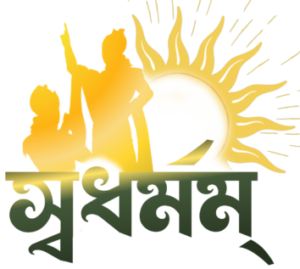


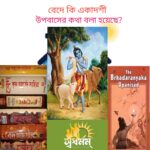

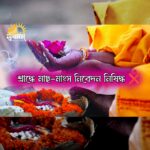
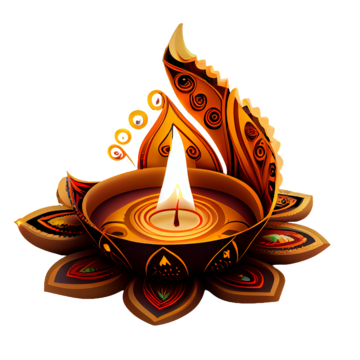
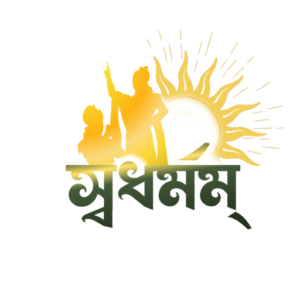
 Views Today : 133
Views Today : 133 Total views : 71135
Total views : 71135 Who's Online : 3
Who's Online : 3 Your IP Address : 2400:c600:4616:5fd:1:0:81a3:e00a
Your IP Address : 2400:c600:4616:5fd:1:0:81a3:e00a